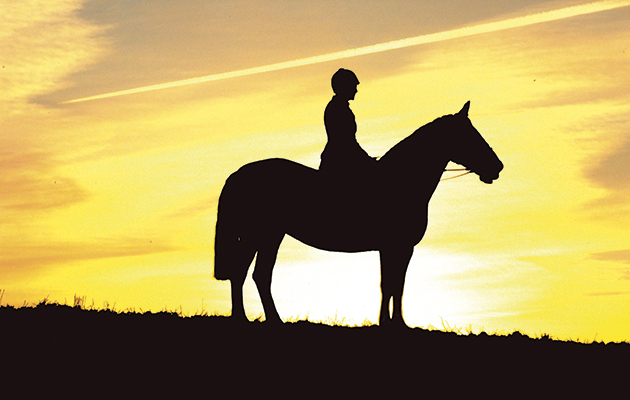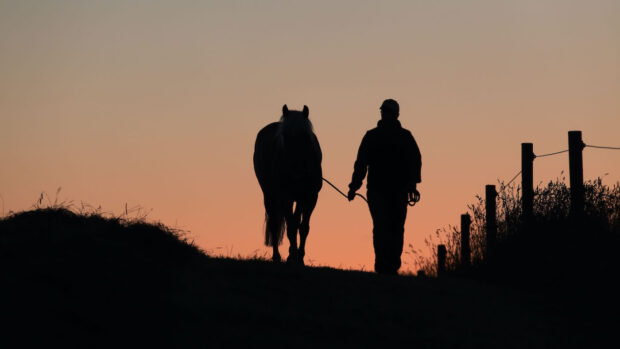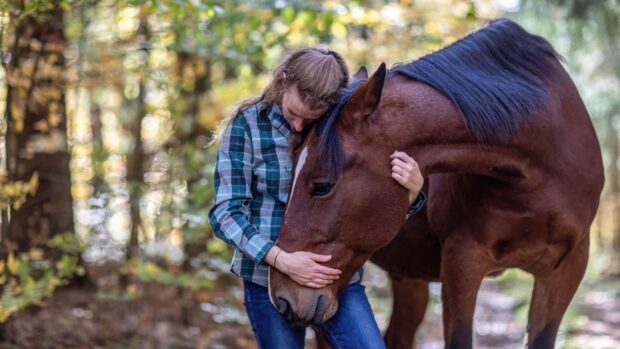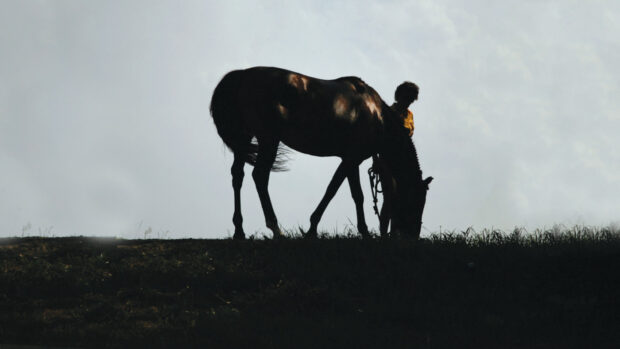When the time comes that we say a final sad farewell to an long-standing equine friend, we might feel a range of emotions from sadness, loneliness, sorrow, perhaps even anger as we grieve for them. However when a horse loses a companion or field-mate, do they also feel this loss? We asked veterinary behaviourist Gemma Pearson MRCVS for her thoughts on the matter.
“Unfortunately there are not many studies looking at loss in horses specifically, because obviously it is a very hard subject to study,” explains Gemma. “Probably what you would see is a form of separation anxiety, so rather than ‘loss’ as in the death of another horse, we would see similar behaviour to what happens when one horse is removed from the other after a period of time together.”
Is it possible for a horse to know their companion has passed away?
“It’s one of those things we don’t have enough evidence to really say yet, but in my opinion innately they understand that something is wrong or something has changed,” says Gemma. “I think the challenge at the minute is it’s just not an area that anyone hugely understands. I think you have to give horses the benefit of the doubt and accept that there will be some sense of loss for them, and try and cope with that for them as well as you can. Be sympathetic to them and make sure the horse is happy and comfortable in other aspects of its life.”
Does it help to let a remaining field-mate see the body of a horse that has died?
“I think this is a very individual thing. If a horse was just removed and never seen again then the remaining horse might show some anxiety about where their companion has gone,” says Gemma. “Where the horse is put to sleep and the body is left for the other horse(s) to see it, how much understanding there is is impossible to say, but I think there may be some understanding there.
“Whether or not to do this is entirely the owner’s opinion and what suits their circumstances. If they are going to let the horse see his former companion’s body, it is important to give the other horse enough time to realise that something significant has changed, not just walk them up, let them sniff and walk them straight away again.”
If you do choose this route, you should be prepared that it can be an upsetting scene to deal with.
“Sometimes the live horse knows something is wrong so they often snort and look fearful at the fact the companion’s body is laying there passed away,” continues Gemma. “I think if you can leave them a bit, and they adjust they might then go and graze again, but for some clients it can be a very traumatic thing. It’s very individual – it’s about meeting the needs of the individual horse and the individual owner.”
Continued below…

9 things no one tells you about losing a horse
The best listeners in the world and the only cure you know for a bad day, you can’t imagine life

5 pieces of advice for coping with the grief of losing your horse
When a horse dies, it can be as traumatic and raw for the owner as losing a best friend or
If a loss of one horse means the remaining horse is left alone, what is the best way to deal with this?
“Horses have an innate need to socialise with other horses,” says Gemma. “People have to consider very carefully if it’s fair to keep a horse by itself or not, whether temporarily or long-term. Keeping them with other horses would always be preferable and certainly there are lots of rescue centres with companion horses looking for homes. If it’s really not possible to get another horse, then another animal would make a better companion than not having any companion at all. If the remaining horse is unable to socialise with other horses for whatever reason there can always be a degree of stress so another animal is better, but it’s never going to be as good as another horse.”
For all the latest news analysis, competition reports, interviews, features and much more, don’t miss Horse & Hound magazine, on sale every Thursday.




